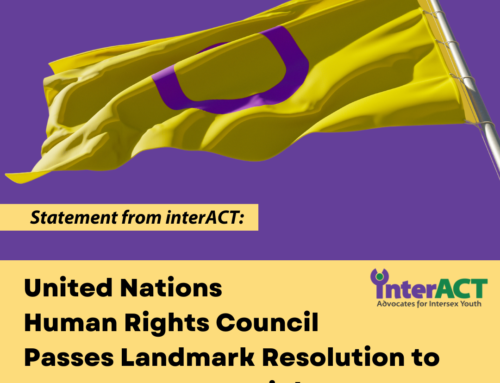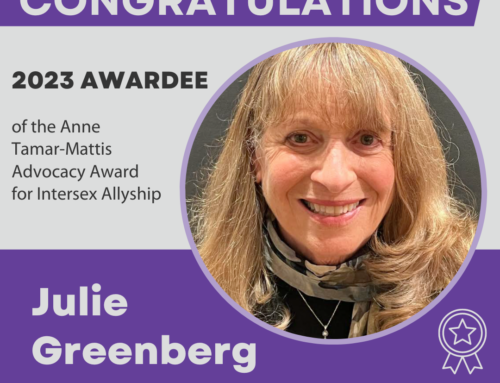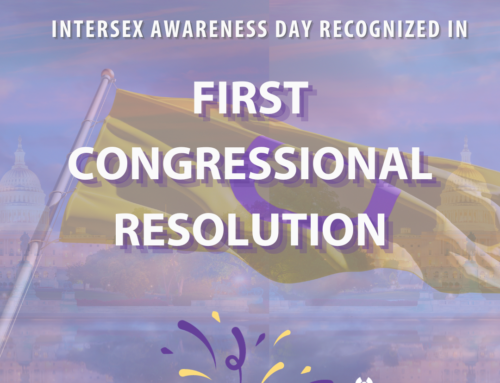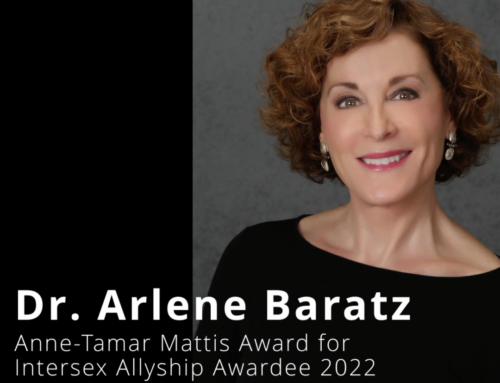AIC recently received a copy of a letter written by an international group of pediatric endocrine societies in response to the United Nations Special Rapporteur on Torture’s statement calling for an end to genital-normalizing surgeries without the consent of the affected person. The letter thanks the United Nations for bringing attention to this issue, while offering no rationale for continuing the practice that the Special Rapporteur and human rights bodies in several regions have condemned.
Issued in February of this year, after testimony (http://aiclegal.org/wordpress/wp-content/uploads/2012/10/AIC-Testimony-to-the-United-Nations-Special-Rapporteur-on-Torture_December-2012.pdf )by Advocates for Informed Choice, the UN Special Rapporteur on Torture’s statement (http://www.ohchr.org/Documents/HRBodies/HRCouncil/RegularSession/Session22/A.HRC.22.53English.pdf ) recognized that
“Children who are born with atypical sex characteristics are often subject to irreversible sex assignment, involuntary sterilization, involuntary genital normalizing surgery, performed without their informed consent, or that of their parents, ‘in an attempt to fix their sex’, leaving them with permanent, irreversible infertility and causing severe mental suffering.”
The report also stated,
“These procedures
Recognizing that performing such dangerous and damaging surgery with no evidence of benefit can amount to torture or cruel, inhuman, or degrading treatment, the Special Rapporteur called for an end to “intrusive and irreversible treatments, including forced genital-normalizing surgery, involuntary sterilization, unethical experimentation, [or] medical display …, when enforced or administered without the free and informed consent of the person concerned.”
Written in April of 2013, the response of an international group of endocrine societies is reprinted below:
19th April 2013
Mr JE Mendez
Special Rapporteur on Torture
Office of the High Commissioner for Human Rights
Dear Mr Mendez
A/HRC/22/53 – Report of the Special Rapporteur on torture and other cruel, inhuman or degrading treatment or punishment
We read with great interest the above report which came to our attention recently. As an international group of professional societies of paediatric endocrinology who care for children with a range of genetic and hormonal conditions that present in early life, we are often faced with children with atypical genitalia in whom a condition classified as a “disorder of sex development” is suspected. These conditions, which may also be termed “intersex” conditions, are often associated with stigma and shame, and many families and affected individuals have difficulty in discussing them with others. We are, therefore, very grateful to the United Nations for bringing this issue to public attention, and hope that discussions and greater awareness generated by this report may eventually lead to improved care, long-term outcomes and wellbeing for affected children and families.
We agree that in the past a great deal of emphasis has been placed on surgical interventions that have been aimed at “normalizing” the appearance of the child’s genitalia in the effort to align the appearance with the sex of rearing. We are also aware that some individuals who have undergone such procedures have felt that they have been harmed as a result. However, over the last few years, medical practice has begun to change considerably, with a greater emphasis being placed on consideration of functional and psychosocial outcomes rather than simply cosmetic appearance. There is, however, great variation in practice across the world and there is a need for greater cooperation and collaboration amongst clinical specialists who deal with such conditions through local, national and international networks to increase knowledge regarding long-term outcomes and optimal care for affected individuals, now and in the future.
Every affected child and his or her family represent a unique group of people with individual medical and social needs. They require access to highly-skilled specialists who can cater for and are receptive to these diverse needs. Improved long-term outcomes and optimal wellbeing for an affected individual requires our global community of clinical specialists, affected individuals and their families, support and advocacy groups, as well as society in general, to be able to discuss these issues in an atmosphere of openness where communication and transparency are encouraged. The main goal in treatment and care for all medical conditions, including disorders of sex development, must be a good quality of life.
We agree that any clinical intervention, medical or surgical, irrespective of the underlying condition, needs to be considered very carefully in all young children who cannot give informed consent; this principle lies at the heart of all clinical practice in children. We thank you again for your interest in, and commitment to, this extremely important issue.
Yours sincerely
S. Faisal Ahmed1
On behalf of
Anna Nordenstrom1, Charmian A. Quigley1,2, Gary Butler1, Fernando Cassorla3,Sten Drop1, Christa Fluck1, Olaf Hiort1, Paul-Martin Holterhus1, Peter Lee2, Tomatsu Ogata4, Lars Savendahl1, Maria de la Luz Ruiz-Reyes3, Iroro Yarhere5
1 European Society for Paediatric Endocrinology
2 Paediatric Endocrine Society
3 Sociedade Latino-Americana de Endocrinologia Pediátrica
4 Japanese Society for Paediatric Endocrinology
5 African Society for Pediatric and Adolescent Endocrinology
The response of the endocrine societies shows clearly the progress we are making in protecting the human rights of children with intersex conditions or DSD, and offers an extremely limited defense of current practices. It shows, first of all, that our work is driving conversation in the medical community and that they are starting to recognize the harsh scrutiny coming from international governance and human rights bodies. Secondly, the letter demonstrates that even a group of prominent specialists in the field was unable to develop consensus on any statement that early genital surgery actually provides benefits to patients.
It is particularly interesting that the letter recognizes the value of input from support and advocacy groups. We can only hope the community of specialists will begin to recognize that the vast majority of these groups are calling for intersex people to be allowed to make their own decisions about their bodies.
AIC thanks the Special Rapporteur again for this important contribution to the conversation, and we appreciate the endocrine societies’ effort to reflect on their practices and respond honestly to criticism. We hope this is a step towards meaningful dialogue with the intersex and human rights communities.





